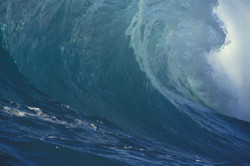Tidal turbine success signals buoyant future for marine-based energy
A scaled down floating tidal turbine has been successfully put to sea off the Orkney Islands in Scotland, an achievement that represents a significant milestone in the development of a viable European marine-based energy sector. This pilot scheme will enable researchers to better understand the maintenance needs of offshore turbines and gain operational experience at sea. The initiative, made possible through the FP7-funded MARINET project, is the first step towards testing a full-scale prototype – a turbine 42 metres in length and 350 tonnes in weight – which is currently under construction. Deployment of this is scheduled for next year. The EU is ploughing significant resources into renewable energy – such as wave energy and tidal-stream converters as well as offshore-wind turbines – in order to reduce the environmental impact of using fossil fuels and to better ensure security of energy supply. Both of these issues are high on the political agenda. Researchers involved in the MARINET project are confident that ocean-based energy sources can help answer both of these challenges, and at the same time, create new jobs. One issue however is that this sector is still largely at the pre-commercial stage. The resources required to properly develop the sector – and the financial risks involved – are significant. The goal of the MARINET project, which is receiving almost EUR 9 million in EU funding, is to bring together partners from across Europe in a coordinated research effort that avoids duplication, speeds up development and supports high-quality research. The deployment of this floating turbine, which was carried out by Spanish tidal turbine company Magallanes, is a case in point. This initiative would not have been possible without assistance from partners in other Member States. For example, the 1:10 scale prototype has been installed at the European Marine Energy Centre (EMEC)’s Shapinsay Sound test site in the UK (EMEC is one of the MARINET project partners). The project aims to streamline and facilitate testing – especially for smaller organisations – by offering access to world-class test facilities such as this free-of-charge. This is one example of how MARINET, which runs until 2015, is bringing together research facilities and technical expertise from across Europe. In parallel to offering free-of-charge access, MARINET has also facilitated industry networking and training through user workshops, staff exchanges and free-of-charge training courses, in order to provide opportunities for collaboration, joint ventures and expertise development. The end result is a coordinated network of pan-European resources and experts, readily available for ocean-based energy research. Coordinated by University College Cork in Ireland, MARINET involves a total of 44 specialist marine research facilities from 29 partners spread across 11 EU countries and one FP7 partner-country, Brazil. Resources are divided into four specific research groups - wave energy, tidal energy, offshore-wind energy and environmental data and cross-cutting issues. Ultimately, the long term objective is to ensure the development of a viable European marine-based renewable energy sector. For further information, please visit: MARINET http://www.fp7-marinet.eu/
Countries
Ireland



